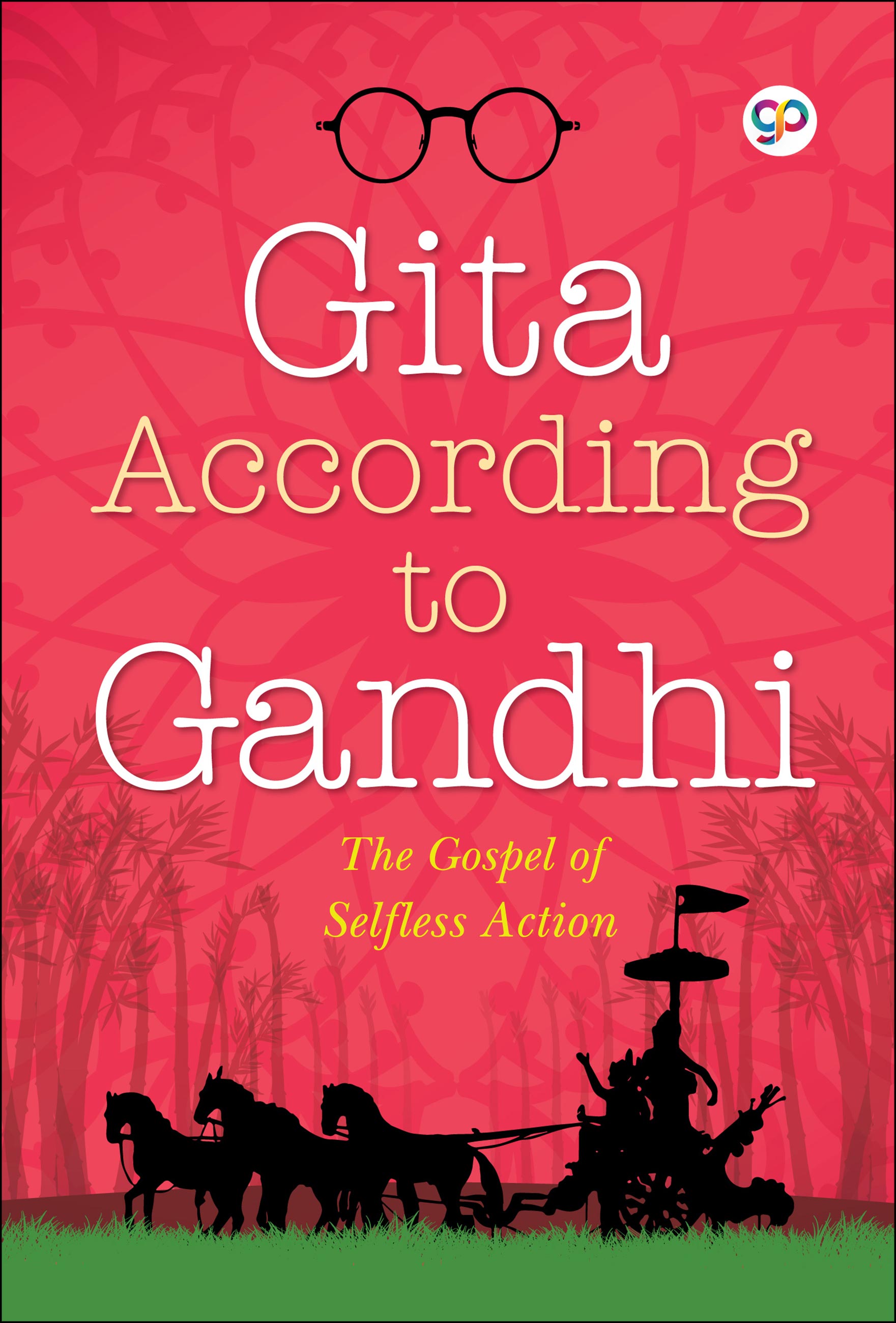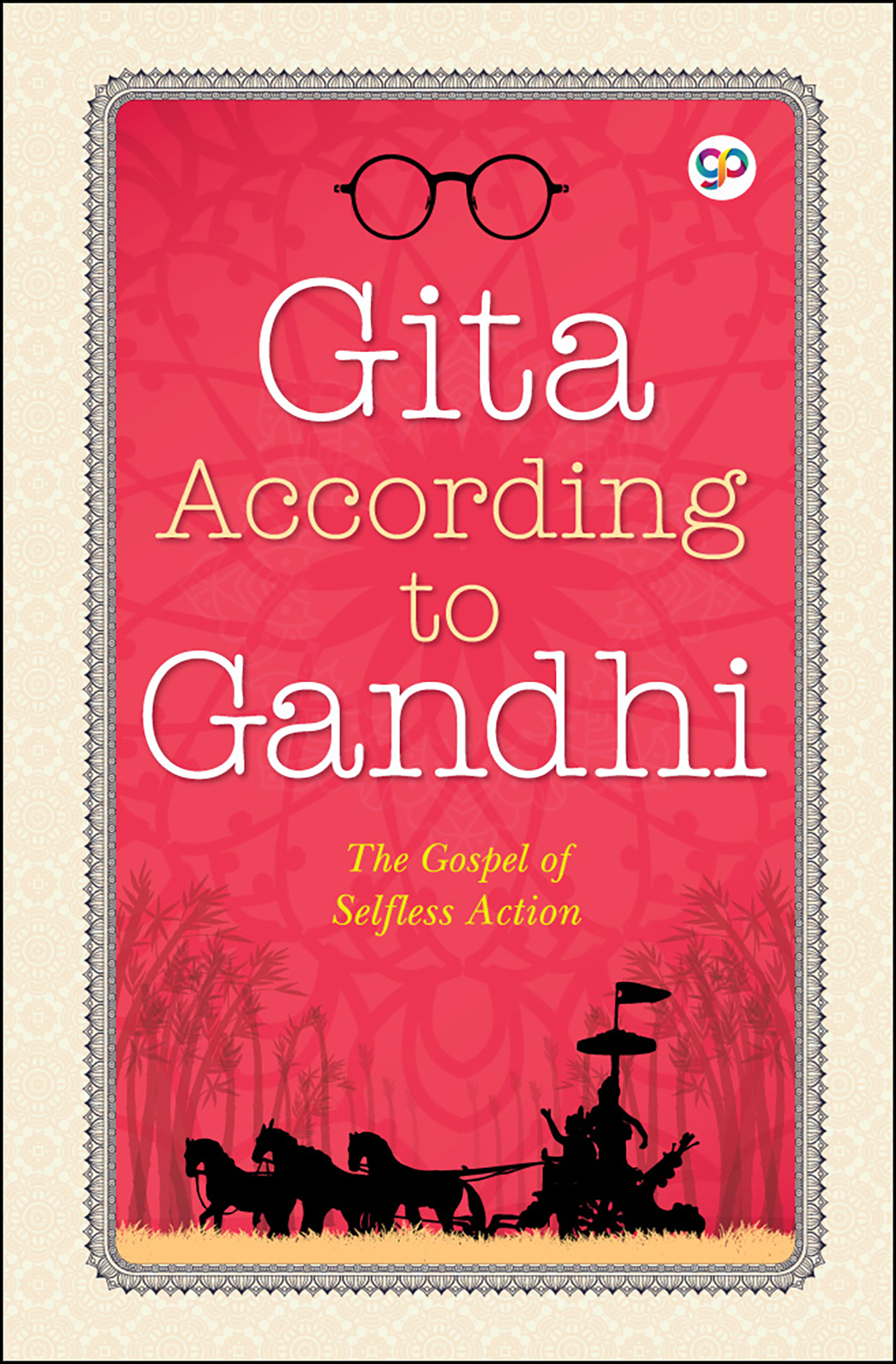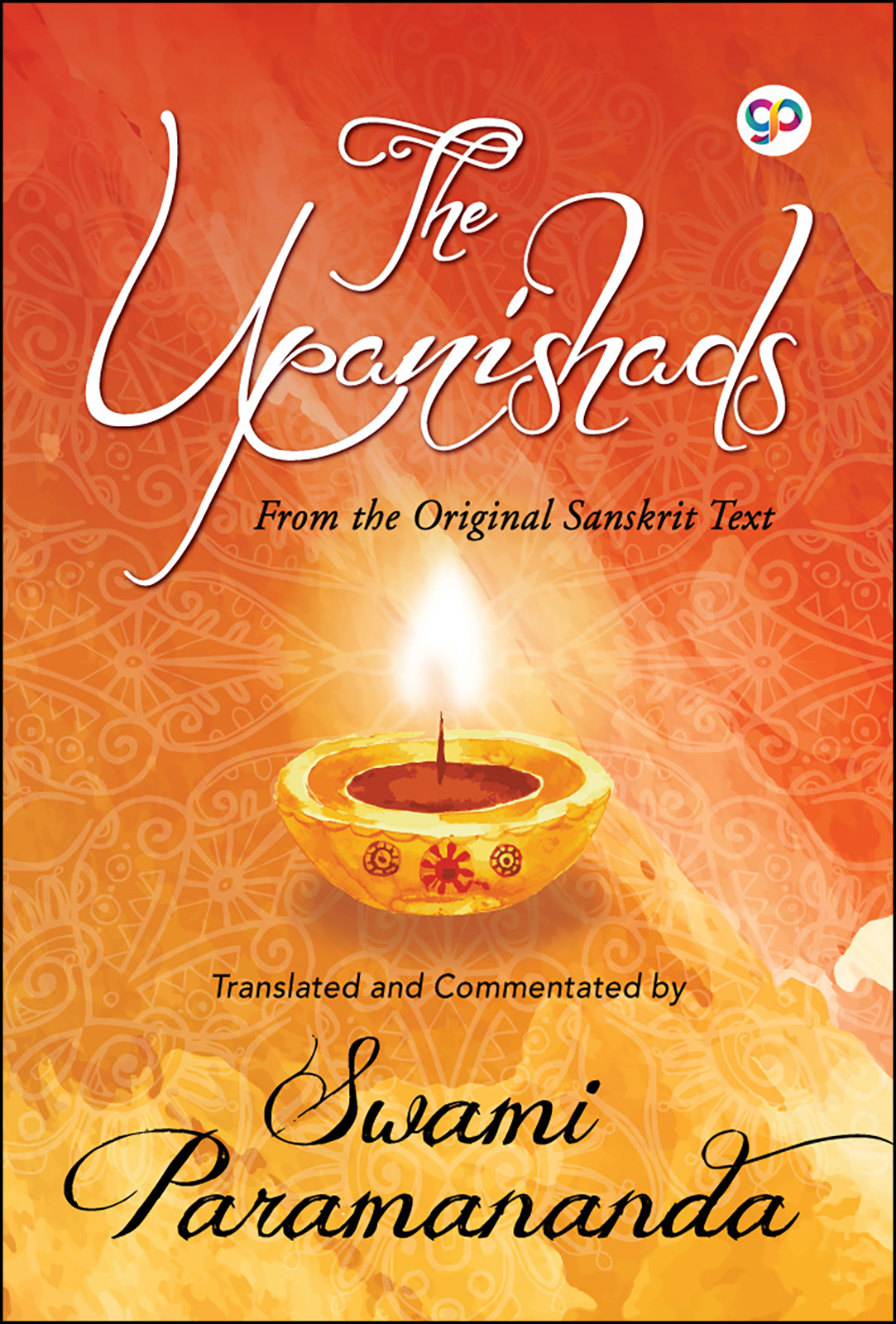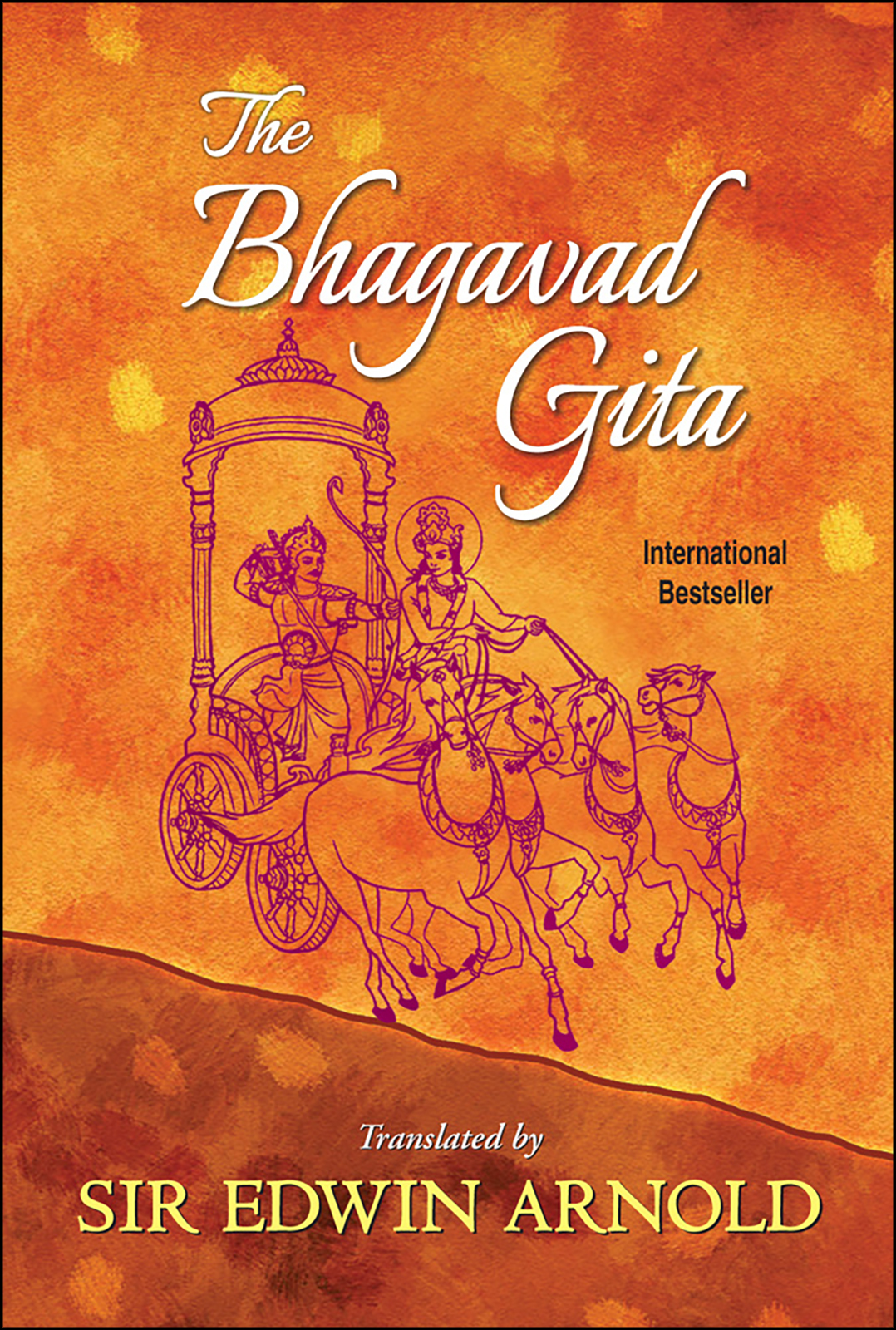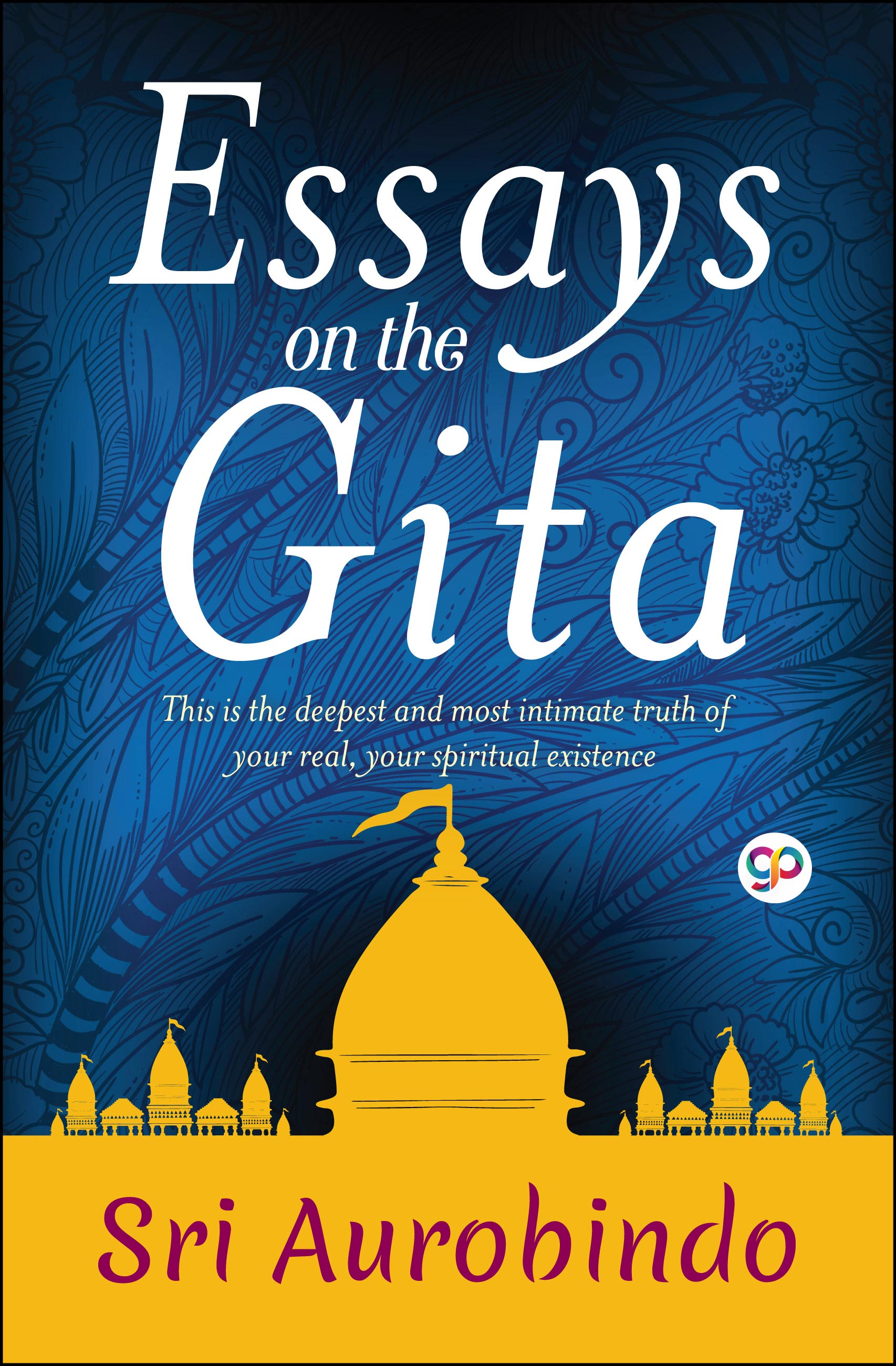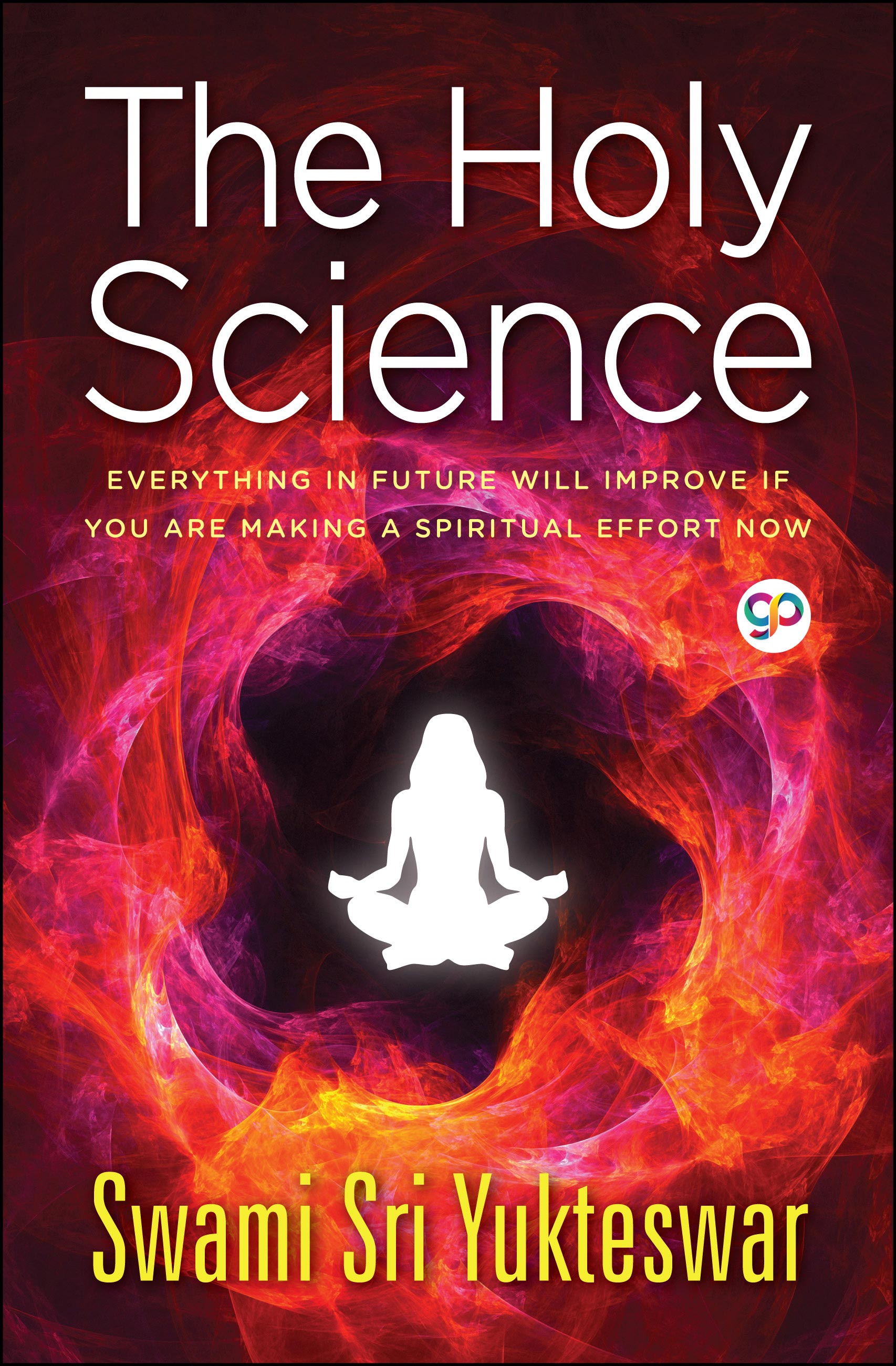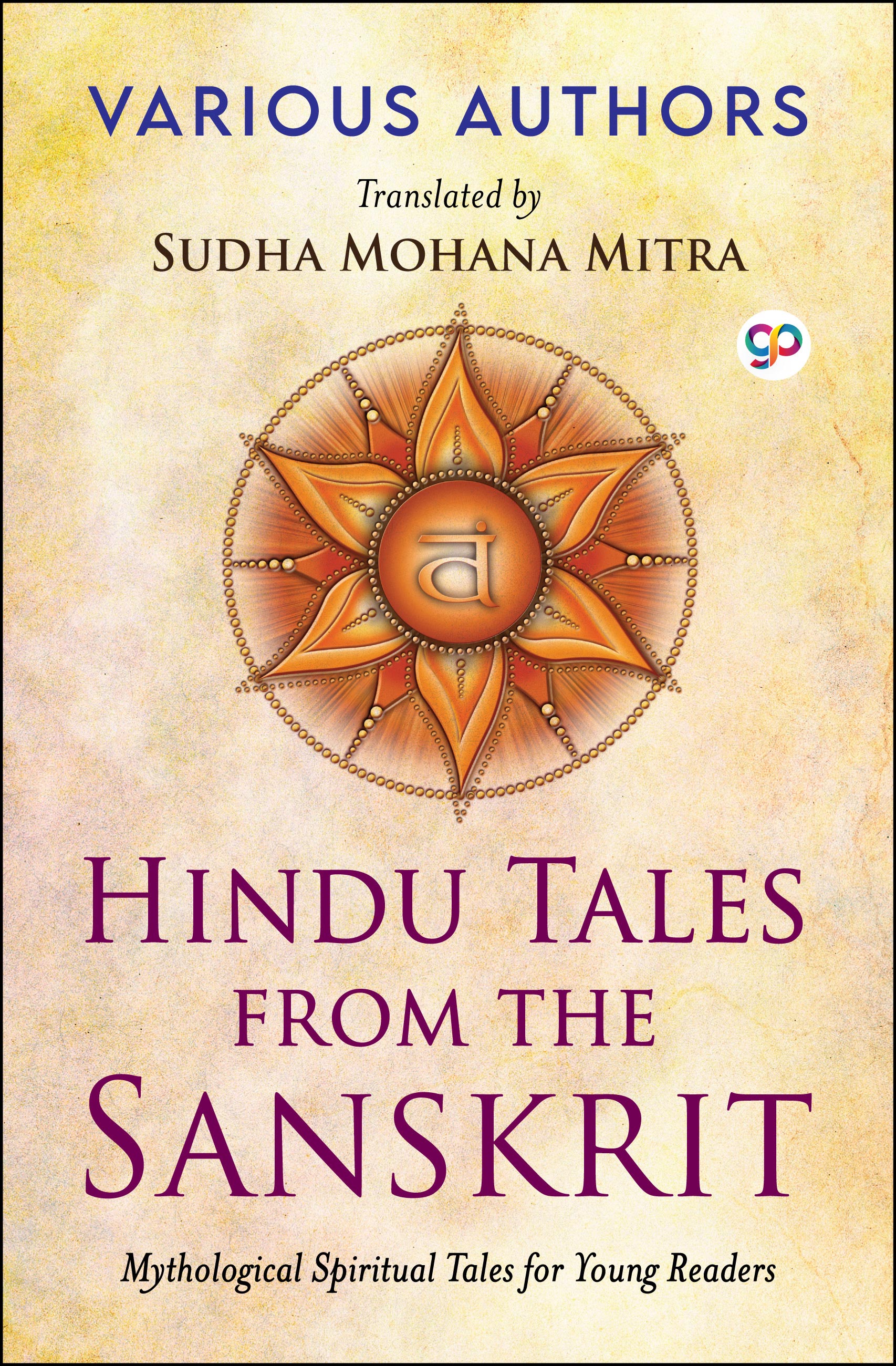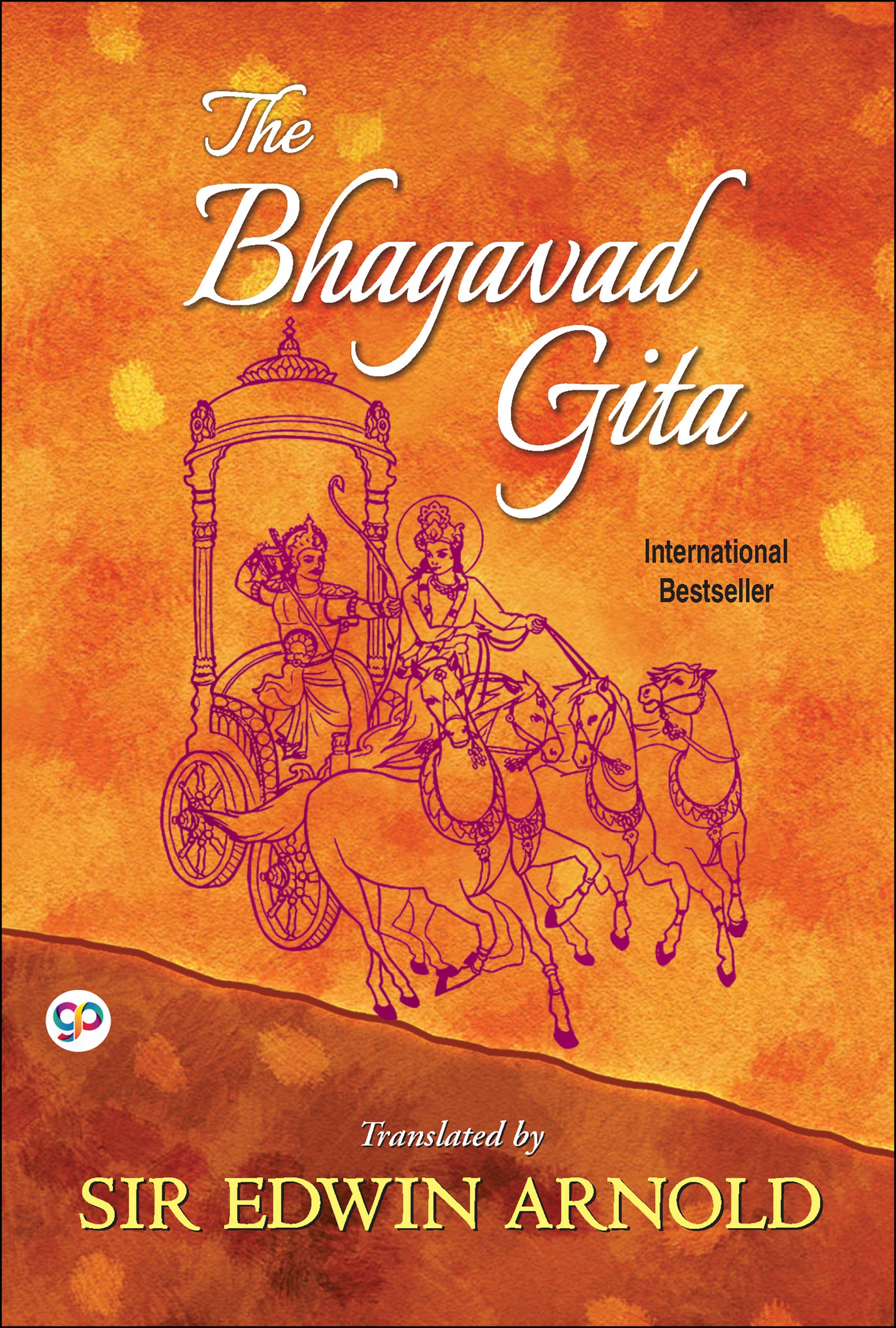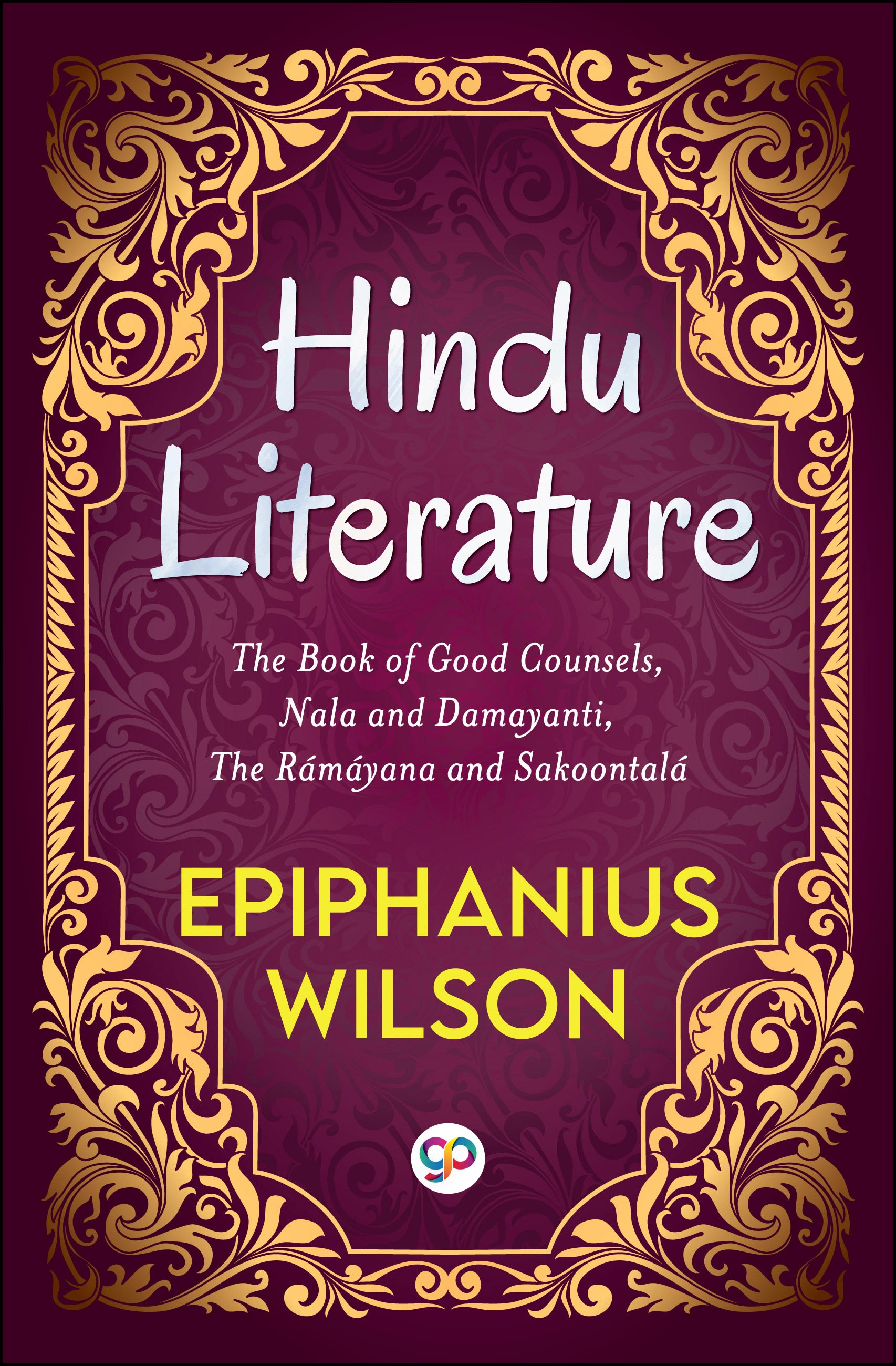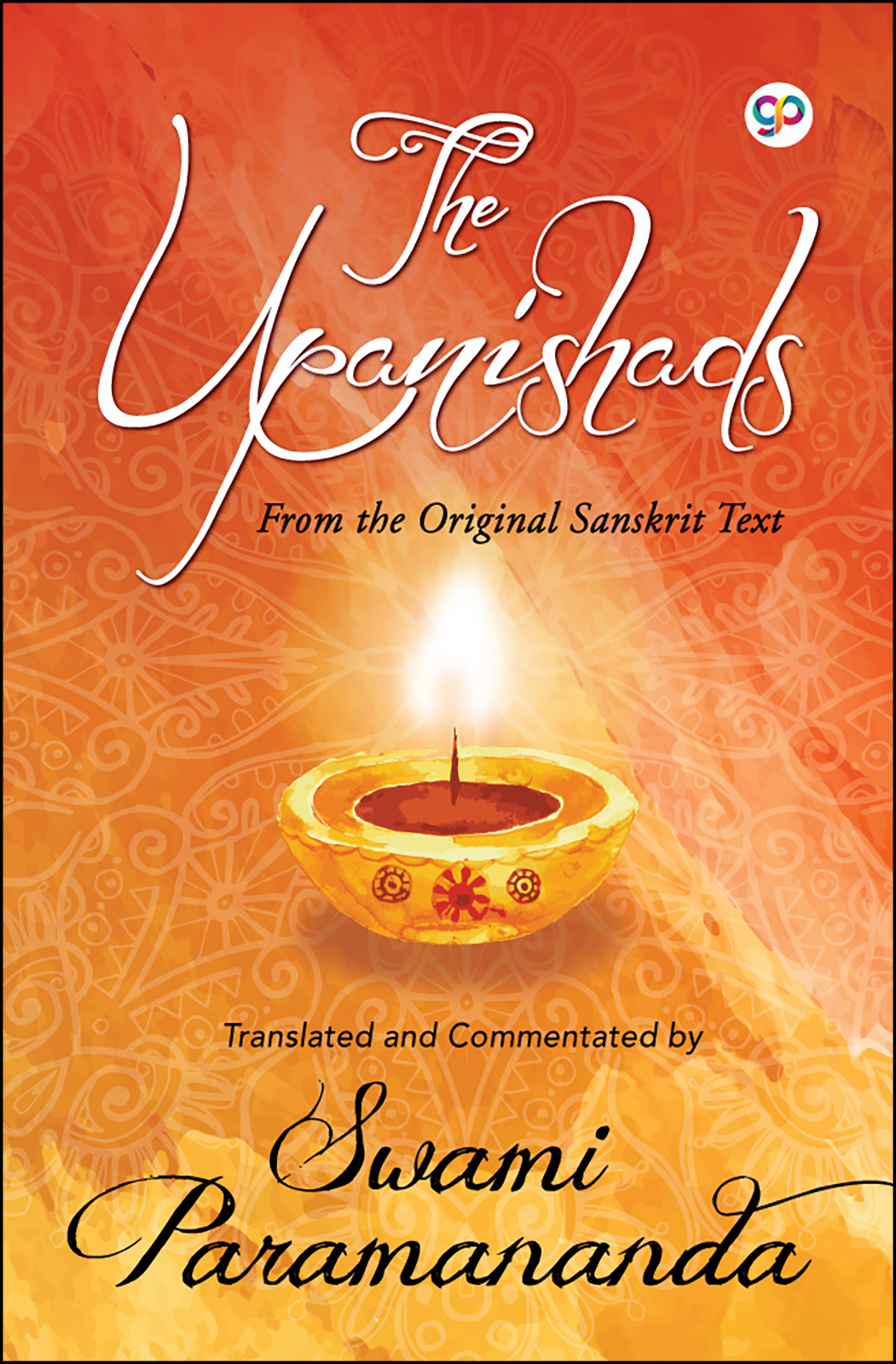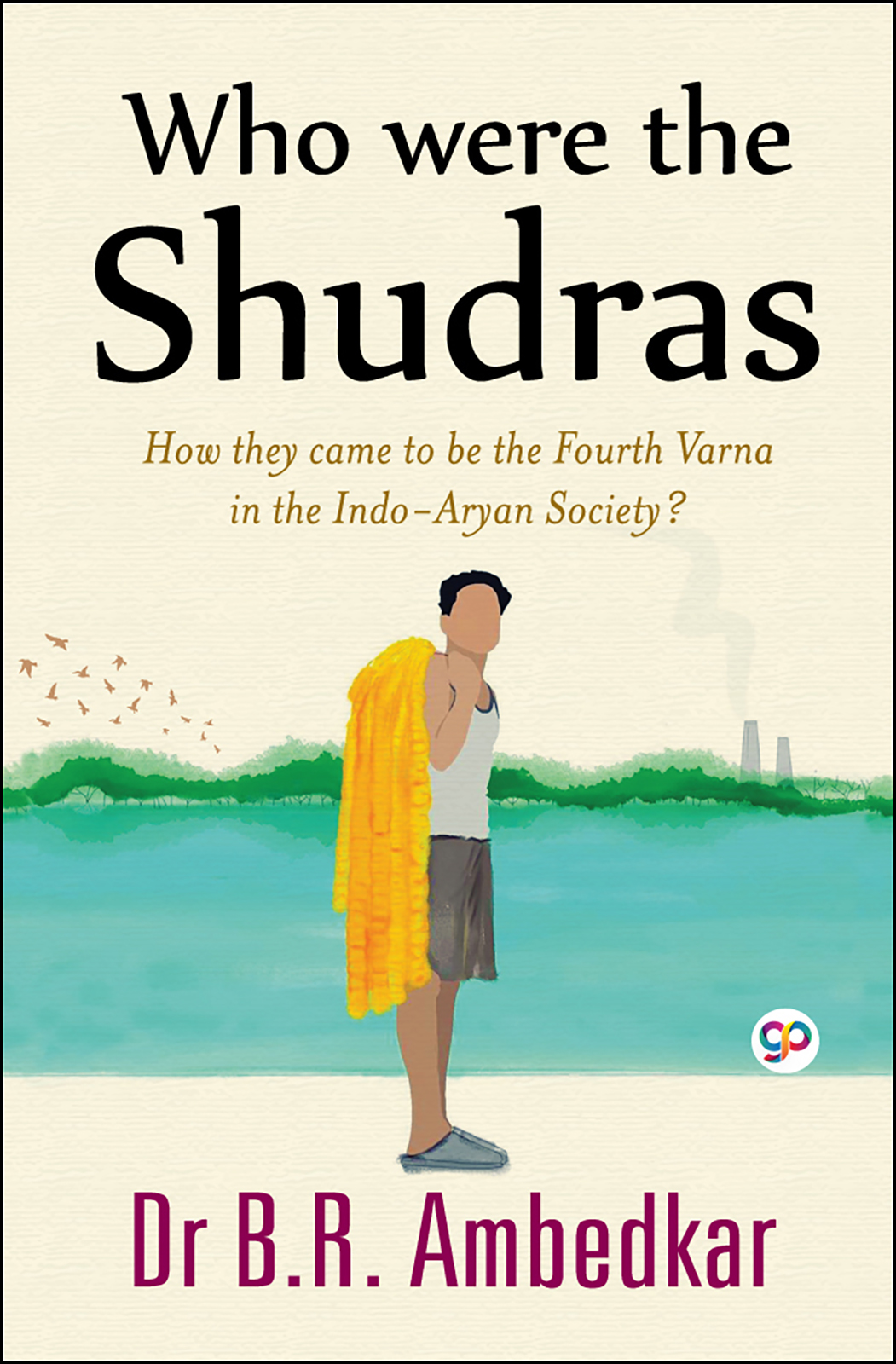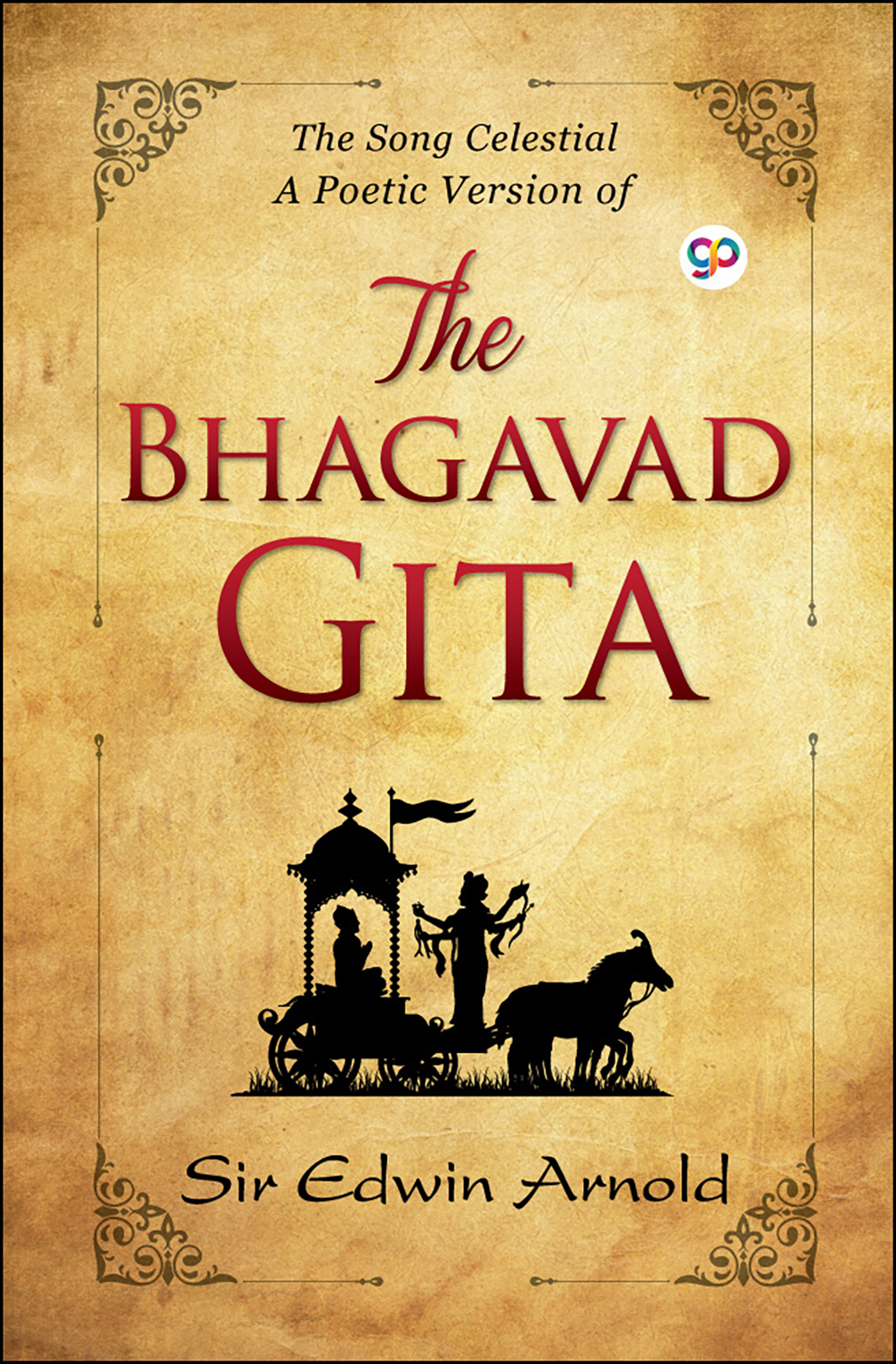
The Bhagavad Gita (Hardcover)
The Bhagavad Gita', meaning the Song of the Lord, is in the form of a poetic dialogue between Arjuna and Krishna. It is part of the great Indian epic 'The Mahabharata', and is one of the major religious documents of the world. It reveals how human beings accumulate 'Karma' as a result of their actions in innumerable incarnations, and how to achieve liberation through devotion and knowledge. The dialogue, which takes place on the eve of an historic battle, probes the nature of God and what man should do to reach him. As 'The Bhagavad Gita' unfolds, this majestic poem provides a fascinating synopsis of the religious thought and experience of India through the ages. This book offers the classic English verse translation by Sir Edwin Arnold (1832-1904), long admired for its evocation of the true feeling of the original poetry.
BEST SELLERS

About the Author
Sir Edwin Arnold (1832-1904), was an English author. After serving as principal of the government college in Pune, India, he joined (1861) the staff of the 'London Daily Telegraph'. He won fame for his blank-verse epic 'The Light of Asia' (1879), dealing with the life of Buddha. The poem was attacked for its alleged distortion of Buddhist doctrine and for its tolerant attitude toward a non-Christian religion. Besides other volumes of poetry, he wrote a number of picturesque travel books and translated Asian literature, inclding 'The Bhagavad Gita'.
Read Sample
Chapter 1 : The Distress of Arjuna DHRITARASHTRA. Ranged thus for battle on the sacred plain— On Kurukshetra—say Sanjaya! Say What wrought my people, and the Pandavas? SANJAYA. When he beheld the host of Pandavas, Raja Duryôdhana to Drona drew, And spake these words: “Ah, Guru! See this line, How vast it is of Pandu fighting-men, Embattled by the son of Drupada, Thy scholar in the war! Therein stand ranked Chiefs like Arjuna, like to Bhima chiefs, Benders of bows; Virâta, Yuyudhân, Drupada, eminent upon his car, Dhrishtaket, Chekitân, Kaśi’s stout lord, Purujit, Kuntibhôj, and Śaivya, With Yudhâmanyu, and Uttamauj Subhadra’s child; and Draupadi’s—all famed! All mounted on their shining chariots! On our side, too—thou best of Brahmans! See Excellent chiefs, commanders of my line, Whose names I joy to count: thyself the first, Then Bhishma, Karna, Kripa fierce in fight, Vikarna, Aśwatthâman; next to these Strong Saumadatti, with full many more Valiant and tried, ready this day to die For me their king, each with his weapon grasped, Each skilful in the field. Weakest—me seems— Our battle shows where Bhishma holds command, And Bhima, fronting him, something too strong! Have care our captains nigh to Bhishma’s ranks Prepare what help they may! Now, blow my shell!” Then, at the signal of the aged king, With blare to wake the blood, rolling around Like to a lion’s roar, the trumpeter Blew the great Conch; and, at the noise of it, Trumpets and drums, cymbals and gongs and horns Burst into sudden clamour; as the blasts Of loosened tempest, such the tumult seemed! Then might be seen, upon their car of gold Yoked with white steeds, blowing their battle-shells, Krishna the God, Arjuna at his side: Krishna, with knotted locks, blew his great conch Carved of the “Giant’s bone”; Arjuna blew Indra’s loud gift; Bhima the terrible— Wolf-bellied Bhima—blew a long reed-conch; And Yudhisthira, Kunti’s blameless son, Winded a mighty shell, “Victory’s Voice”; And Nakula blew shrill upon his conch Named the “Sweet-sounding”, Sahadev on his Called “Gem-bedecked”, and Kaśi’s Prince on his. Sikhandi on his car, Dhrishtadyumn, Virâta, Sâtyaki the Unsubdued, Drupada, with his sons (O Lord of Earth!), Long-armed Subhadra’s children, all blew loud, So that the clangour shook their foemen’s hearts, With quaking earth and thundering heav’n. Then ’twas— Beholding Dhritarashtra’s battle set, Weapons unsheathing, bows drawn forth, the war Instant to break—Arjun, whose ensign-badge Was Hanuman the monkey, spake this thing To Krishna the Divine, his charioteer: “Drive, Dauntless One! To yonder open ground Betwixt the armies; I would see more nigh These who will fight with us, those we must slay To-day, in war’s arbitrament; for, sure, On bloodshed all are bent who throng this plain, Obeying Dhritarashtra’s sinful son.” Thus, by Arjuna prayed, (O Bharata!) Between the hosts that heavenly Charioteer Drove the bright car, reining its milk-white steeds Where Bhishma led, and Drona, and their Lords, “See!” spake he to Arjuna, “where they stand, Thy kindred of the Kurus:” and the Prince Marked on each hand the kinsmen of his house, Grandsires and sires, uncles and brothers and sons, Cousins and sons-in-law and nephews, mixed With friends and honoured elders; some this side, Some that side ranged: and seeing those opposed, Such kith grown enemies—Arjuna’s heart Melted with pity, while he uttered this: ARJUNA. Krishna! as I behold, come here to shed Their common blood, yon concourse of our kin, My members fail, my tongue dries in my mouth, A shudder thrills my body, and my hair Bristles with horror; from my weak hand slips Gandîv, the goodly bow; a fever burns My skin to parching; hardly may I stand; The life within me seems to swim and faint; Nothing do I foresee save woe and wail! It is not good, O Keshav! nought of good Can spring from mutual slaughter! Lo, I hate Triumph and domination, wealth and ease, Thus sadly won! Aho! what victory Can bring delight, Govinda! what rich spoils Could profit; what rule recompense; what span Of life itself seem sweet, bought with such blood? Seeing that these stand here, ready to die, For whose sake life was fair, and pleasure pleased, And power grew precious—grandsires, sires, and sons, Brothers, and fathers-in-law, and sons-in-law, Elders and friends! Shall I deal death on these Even though they seek to slay us? Not one blow, O Madhusudan! will I strike to gain The rule of all Three Worlds; then, how much less To seize an earthly kingdom! Killing these Must breed but anguish, Krishna! If they be Guilty, we shall grow guilty by their deaths; Their sins will light on us, if we shall slay Those sons of Dhritarashtra, and our kin; What peace could come of that, O Madhava? For if indeed, blinded by lust and wrath, These cannot see, or will not see, the sin Of kingly lines o’erthrown and kinsmen slain, How should not we, who see, shun such a crime— We, who perceive the guilt and feel the shame— O thou Delight of Men, Janârdana? By overthrow of houses perisheth Their sweet continuous household piety, And—rites neglected, piety extinct— Enters impiety upon that home; Its women grow unwomaned, whence there spring Mad passions, and the mingling-up of castes, Sending a Hell-ward road that family, And who so wrought its doom by wicked wrath. Nay, and the souls of honoured ancestors Fall from their place of peace, being bereft Of funeral-cakes and the wan death-water. So teach our holy hymns. Thus, if we slay Kinsfolk and friends for love of earthly power. Ahovat! what an evil fault it were! Better I deem it, if my kinsmen strike, To face them weaponless, and bare my breast To shaft and spear, than answer blow with blow. So speaking, in the face of those two hosts, Arjuna sank upon his chariot-seat, And let fall bow and arrows, sick at heart. HERE ENDETH CHAPTER 1 OF THE BHAGAVAD-GÎTÂ, Entitled “Arjun-Vishâd”, Or “The Book of the Distress of Arjuna”. Chapter 2 : The Book of Doctrines SANJAYA. Him, filled with such compassion and such grief, With eyes tear-dimmed, despondent, in stern words The Driver, Madhusudan, thus addressed: KRISHNA. How hath this weakness taken thee? Whence springs The inglorious trouble, shameful to the brave, Barring the path of virtue? Nay, Arjun! Forbid thyself to feebleness! it mars Thy warrior-name! cast off the coward-fit! Wake! Be thyself! Arise, Scourge of thy Foes! ARJUNA. How can I, in the battle, shoot with shafts On Bhishma, or on Drona—O thou Chief!— Both worshipful, both honourable men? Better to live on beggar’s bread With those we love alive, Than taste their blood in rich feasts spread, And guiltily survive! Ah! were it worse—who knows?—to be Victor or vanquished here, When those confront us angrily Whose death leaves living drear? In pity lost, by doubtings tossed, My thoughts—distracted—turn To Thee, the Guide I reverence most, That I may counsel learn: I know not what would heal the grief Burned into soul and sense, If I were earth’s unchallenged chief— A god—and these gone thence! SANJAYA. So spake Arjuna to the Lord of Hearts, And sighing, “I will not fight!” held silence then. To whom, with tender smile (O Bharata!), While the Prince wept despairing ’twixt those hosts, Krishna made answer in divinest verse: KRISHNA. Thou grievest where no grief should be! Thou speak’st Words lacking wisdom! for the wise in heart Mourn not for those that live, nor those that die. Nor I, nor thou, nor any one of these, Ever was not, nor ever will not be, For ever and for ever afterwards. All, that doth live, lives always! To man’s frame As there come infancy and youth and age, So come there raisings-up and laying down Of other and of other life-abodes, Which the wise know, and fear not. This that irks— Thy sense-life, thrilling to the elements— Bringing thee heat and cold, sorrows and joys, ’Tis brief and mutable! Bear with it, Prince! As the wise bear. The soul which is not moved, The soul that with a strong and constant calm Takes sorrow and takes joy indifferently, Lives in the life undying! That which is Can never cease to be; that which is not Will not exist. To see this truth of both Is theirs who part essence from accident, Substance from shadow. Indestructible, Learn thou! the Life is, spreading life through all; It cannot anywhere, by any means, Be anywise diminished, stayed, or changed. But for these fleeting frames which it informs With spirit deathless, endless, infinite, They perish. Let them perish, Prince! and fight! He who shall say, “Lo! I have slain a man!” He who shall think, “Lo! I am slain!” those both Know naught! Life cannot slay. Life is not slain! Never the spirit was born; the spirit shall cease to be never Never was time it was not; End and Beginning are dreams! Birthless and deathless and changeless remaineth the spirit forever; Death hath not touched it at all, dead though the house of it seems! Who knoweth it exhaustless, self-sustained, Immortal, indestructible—shall such Say, “I have killed a man, or caused to kill?” Nay, but as when one layeth His worn-out robes away, And, taking new ones, sayeth, “These will I wear to-day!” So putteth by the spirit Lightly its garb of flesh, And passeth to inherit A residence afresh. I say to thee weapons reach not the Life; Flame burns it not, waters cannot o’erwhelm, Nor dry winds wither it. Impenetrable, Unentered, unassailed, unharmed, untouched, Immortal, all-arriving, stable, sure. Invisible, ineffable, by word And thought uncompassed, ever all itself, Thus is the Soul declared! How wilt thou, then— Knowing it so—grieve when thou shouldst not grieve? How, if thou hearest that the man new-dead Is, like the man new-born, still living man— One same, existent Spirit—wilt thou weep? The end of birth is death; the end of death Is birth: this is ordained! and mournest thou, Chief of the stalwart arm! for what befalls Which could not otherwise befall? The birth Of living things comes unperceived; the death Comes unperceived; between them, beings perceive: What is there sorrowful herein, dear Prince? Wonderful, wistful, to contemplate! Difficult, doubtful, to speak upon! Strange and great for tongue to relate, Mystical hearing for everyone! Nor wotteth man this, what a marvel it is, When seeing, saying, and hearing are done! This Life within all living things, my Prince! Hides beyond harm; scorn thou to suffer, then, For that which cannot suffer. Do thy part! Be mindful of thy name, and tremble not! Nought better can betide a martial soul Than lawful war; happy the warrior To whom comes joy of battle—comes, as now, Glorious and fair, unsought; opening for him A gateway unto Heav’n. But, if thou shunn’st This honourable field—a Kshatriya— If, knowing thy duty and thy task, thou bidd’st Duty and task go by—that shall be sin! And those to come shall speak thee infamy From age to age; but infamy is worse For men of noble blood to bear than death! The chiefs upon their battle-chariots Will deem ’twas fear that drove thee from the fray. Of those who held thee mighty-souled the scorn Thou must abide, while all thine enemies Will scatter bitter speech of thee, to mock The valour which thou hadst; what fate could fall More grievously than this? Either—being killed— Thou wilt win Swarga’s safety, or—alive And victor—thou wilt reign an earthly king. Therefore, arise, thou Son of Kunti! brace Thine arm for conflict, nerve thy heart to meet— As things alike to thee—pleasure or pain, Profit or ruin, victory or defeat: So minded, gird thee to the fight, for so Thou shalt not sin! Thus far I speak to thee As from the “Sânkhya”—unspiritually— Hear now the deeper teaching of the Yôg, Which holding, understanding, thou shalt burst Thy Karmabandh, the bondage of wrought deeds. Here shall no end be hindered, no hope marred, No loss be feared: faith—yea, a little faith— Shall save thee from the anguish of thy dread. Here, Glory of the Kurus! shines one rule— One steadfast rule—while shifting souls have laws Many and hard. Specious, but wrongful deem The speech of those ill-taught ones who extol The letter of their Vedas, saying, “This Is all we have, or need;” being weak at heart With wants, seekers of Heaven: which comes—they say— As “fruit of good deeds done”; promising men Much profit in new births for works of faith; In various rites abounding; following whereon Large merit shall accrue towards wealth and power; Albeit, who wealth and power do most desire Least fixity of soul have such, least hold On heavenly meditation. Much these teach, From Veds, concerning the “three qualities”; But thou, be free of the “three qualities”, Free of the “pairs of opposites,” and free From that sad righteousness which calculates; Self-ruled, Arjuna! simple, satisfied! Look! like as when a tank pours water forth To suit all needs, so do these Brahmans draw Text for all wants from tank of Holy Writ. But thou, want not! ask not! Find full reward Of doing right in right! Let right deeds be Thy motive, not the fruit which comes from them. And live in action! Labour! Make thine acts Thy piety, casting all self aside, Condemning gain and merit; equable In good or evil: equability Is Yôg, is piety! Yet, the right act Is less, far less, than the right-thinking mind. Seek refuge in thy soul; have there thy heaven! Scorn them that follow virtue for her gifts! The mind of pure devotion—even here— Casts equally aside good deeds and bad, Passing above them. Unto pure devotion Devote thyself: with perfect meditation Comes perfect act, and the right-hearted rise— More certainly because they seek no gain— Forth from the bands of body, step by step, To highest seats of bliss. When thy firm soul Hath shaken off those tangled oracles Which ignorantly guide, then shall it soar To high neglect of what’s denied or said, This way or that way, in doctrinal writ. Troubled no longer by the priestly lore, Safe shall it live, and sure; steadfastly bent On meditation. This is Yôg—and Peace! ARJUNA. What is his mark who hath that steadfast heart, Confirmed in holy meditation? How Know we his speech, Keśava? Sits he, moves he Like other men? KRISHNA. When one, O Prithâ’s Son! Abandoning desires which shake the mind— Finds in his soul full comfort for his soul, He hath attained the Yôg—that man is such! In sorrows not dejected, and in joys Not overjoyed; dwelling outside the stress Of passion, fear, and anger; fixed in calms Of lofty contemplation—such an one Is Muni, is the Sage, the true Recluse! He who to none and nowhere overbound By ties of flesh, takes evil things and good Neither desponding nor exulting, such Bears wisdom’s plainest mark! He who shall draw As the wise tortoise draws its four feet safe Under its shield, his five frail senses back Under the spirit’s buckler from the world Which else assails them, such an one, my Prince! Hath wisdom’s mark! Things that solicit sense Hold off from the self-governed; nay, it comes, The appetites of him who lives beyond Depart—aroused no more. Yet may it chance, O Son of Kunti! that a governed mind Shall some time feel the sense-storms sweep, and wrest Strong self-control by the roots. Let him regain His kingdom! let him conquer this, and sit On Me intent. That man alone is wise Who keeps the mastery of himself! If one Ponders on objects of the sense, there springs Attraction; from attraction grows desire, Desire flames to fierce passion, passion breeds Recklessness; then the memory—all betrayed— Lets noble purpose go, and saps the mind, Till purpose, mind, and man are all undone. But, if one deals with objects of the sense Not loving and not hating, making them Serve his free soul, which rests serenely lord, Lo! such a man comes to tranquillity; And out of that tranquillity shall rise The end and healing of his earthly pains, Since the will governed sets the soul at peace. The soul of the ungoverned is not his, Nor hath he knowledge of himself; which lacked, How grows serenity? and, wanting that, Whence shall he hope for happiness? The mind That gives itself to follow shows of sense Seeth its helm of wisdom rent away, And, like a ship in waves of whirlwind, drives To wreck and death. Only with him, great Prince! Whose senses are not swayed by things of sense— Only with him who holds his mastery, Shows wisdom perfect. What is midnight-gloom To unenlightened souls shines wakeful day To his clear gaze; what seems as wakeful day Is known for night, thick night of ignorance, To his true-seeing eyes. Such is the Saint! And like the ocean, day by day receiving Floods from all lands, which never overflows Its boundary-line not leaping, and not leaving, Fed by the rivers, but unswelled by those— So is the perfect one! to his soul’s ocean The world of sense pours streams of witchery; They leave him as they find, without commotion, Taking their tribute, but remaining sea. Yea! who so, shaking off the yoke of flesh Lives lord, not servant, of his lusts; set free From pride, from passion, from the sin of “Self”, Toucheth tranquillity! O Prithâ’s Son! That is the state of Brahm! There rests no dread When that last step is reached! Live where he will, Die when he may, such passeth from all ’plaining, To blest Nirvâna, with the Gods, attaining. HERE ENDETH CHAPTER II OF THE BHAGAVAD-GÎTÂ, Entitled “Sânkhya-Yôg”, Or “The Book of Doctrines”.

